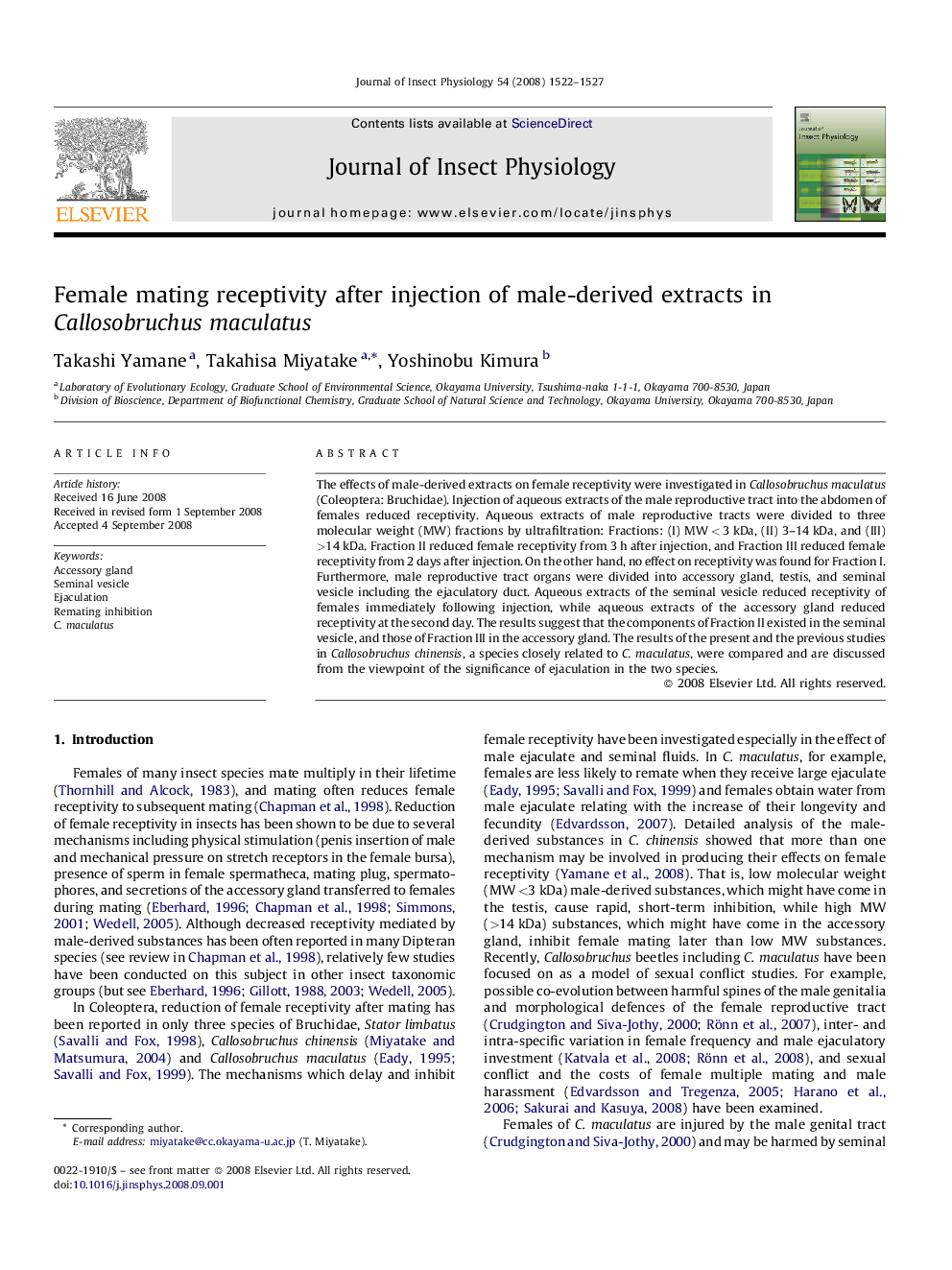| Article ID | Journal | Published Year | Pages | File Type |
|---|---|---|---|---|
| 2841235 | Journal of Insect Physiology | 2008 | 6 Pages |
The effects of male-derived extracts on female receptivity were investigated in Callosobruchus maculatus (Coleoptera: Bruchidae). Injection of aqueous extracts of the male reproductive tract into the abdomen of females reduced receptivity. Aqueous extracts of male reproductive tracts were divided to three molecular weight (MW) fractions by ultrafiltration: Fractions: (I) MW < 3 kDa, (II) 3–14 kDa, and (III) >14 kDa. Fraction II reduced female receptivity from 3 h after injection, and Fraction III reduced female receptivity from 2 days after injection. On the other hand, no effect on receptivity was found for Fraction I. Furthermore, male reproductive tract organs were divided into accessory gland, testis, and seminal vesicle including the ejaculatory duct. Aqueous extracts of the seminal vesicle reduced receptivity of females immediately following injection, while aqueous extracts of the accessory gland reduced receptivity at the second day. The results suggest that the components of Fraction II existed in the seminal vesicle, and those of Fraction III in the accessory gland. The results of the present and the previous studies in Callosobruchus chinensis, a species closely related to C. maculatus, were compared and are discussed from the viewpoint of the significance of ejaculation in the two species.
